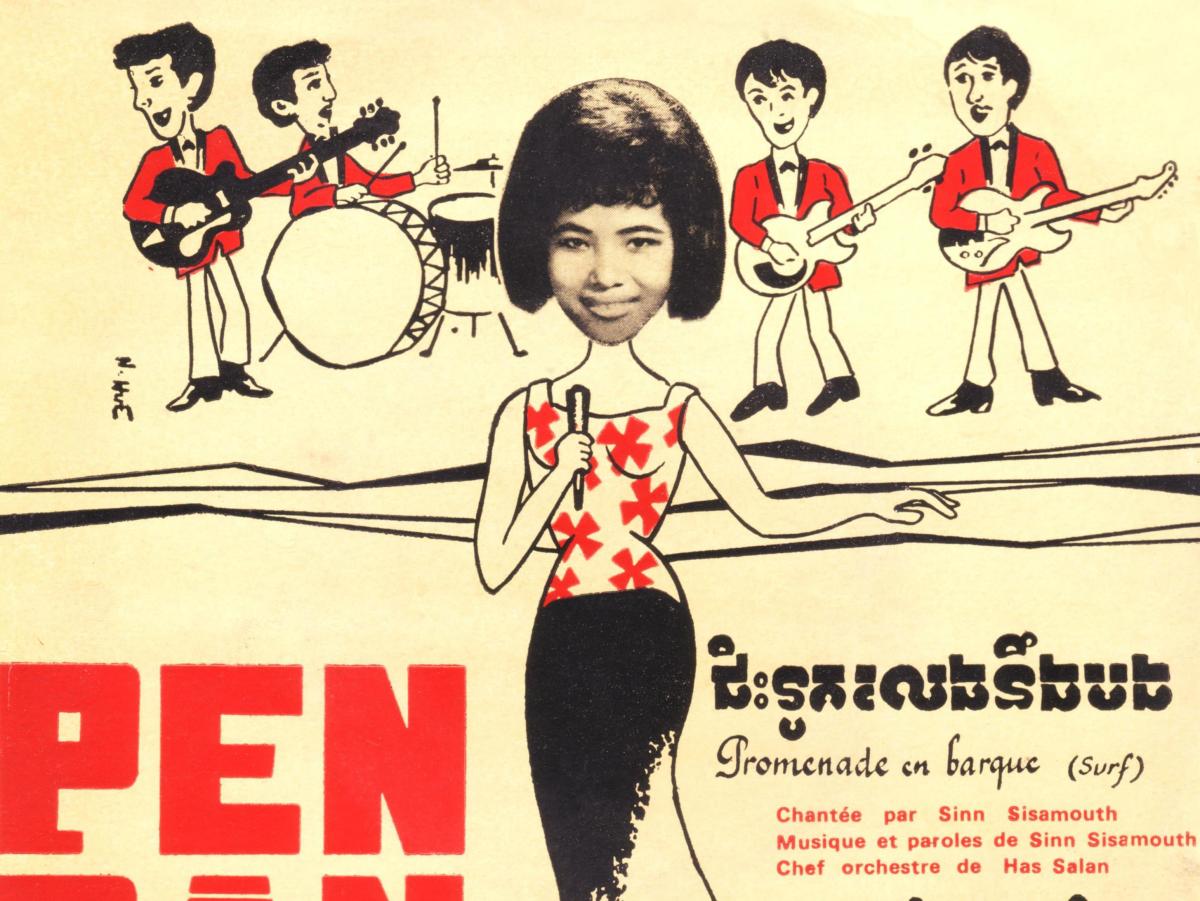Any good documentary about arts history has the task of informing its viewer of the social political climate of the time. A documentary about Cambodia’s ‘lost rock’n’roll’ is under even more pressure to do so.
Music is not the first thing that comes to mind when thinking about Cambodia. More readily, it’s the Khmer Rouge and Pol Pot. Combining two histories – country and culture – into a feature-length film is a tall order, especially when the country’s political history is one of such extremes.
In Don’t Think I’ve Forgotten, the big challenge for the filmmaker is how to find balance to include enough compelling information about both histories for the audience to feel a deep connection to what is being represented. The oppressive and devastating rule of dictator Pol Pot and the Khmer Rouge was in reality in power for only four years 1975-1979, but the film covers history from the late 50s -1979 in order to present a full picture of Cambodia’s modern music scene and ever-changing cultural life.
The result is that the documentary is as much a painted history of Phnom Penh and cosmopolitan Cambodia as it is about a crash course in the country’s lost music history. This is not an entirely bad thing: the insight into how modern Cambodia was and how connected they were with culture and progress is one of the great insights in the film.
Don’t Think I’ve Forgotten follows a fairly standard documentary format. It’s mostly chronological, interweaving old footage and photography and uses the talking heads format. Lucky for us, some of the musicians from the 60s-80s are still alive with their stories to tell and it’s only once you get to the end of the film that you learn how much of a miracle this is. It’s also a tragic miracle; it’s not that joyous to be one amongst a small group of survivors.
The majority of the film’s time is taken by setting the scene of the Khmer Rouge’s political takeover while earnestly mapping out the pop music stars and pioneers of the day. Under this pressure, the film has to rush over what the country was really like under Royal rule. Although it seems rosy, there are tiny pointers to allude otherwise.
There is so much to this story, it is perhaps better suited to a six-part mini-series to truly digest. It may be a reflection of the film that in this review the actual music has still not been addressed! Perhaps what is missing is more in-depth, intimate stories about some of the musicians. More insight into how Ros Serey Sothea and the cross-generational music artist Sinn Sinamouth’s relationship developed would deepen an emotional connection to the music stars and their story. The film earnestly tries to name check as many important artists as possible that I fear it was too much to squeeze in. Credit is due to director Joe Pirozzi for taking the time and effort to so honour these people’s lives. The conflict between being comprehensive or being concise and compelling constitututes an ongoing challenge of narrative.
The need to access good quality footage and audio from a time when most of the film’s subjects are deceased is another challenge for any documentary maker. Don’t Think I’ve Forgotten succeeds on both counts. The footage from the pre70s is fascinating: recently liberated from French rule, young Cambodians are bumping and jiving, playing congas and the maracas. Would you have guessed that 60s Afro-cuban rhythms would make it all that way?
Any admirer of historic footage will love the jewels to be found in this film, not only the early music videos, but also footage from the 70s, post US Army’s Americanisation and counter-cultural activity. There are some very nice cinematic vignettes and ‘reenactment footage’ of no specific events, but scenes that evoke an ambience, a mood and a style. These contemporary fill-in visuals are very nicely treated, so there is no jarring of time and place.
Music enthusiasts won’t necessarily find a whole new music genre here, but that is not to discredit the Cambodian pop scene. Music ethnologists will love the traditional-meets-western influences; the types of music sold in record stores in the city, and the deep connection to music culture the Cambodian people have. The standout highlight of song writing comes from a young Yol Aularong and his song ‘Riding a Cyclo’, in which song lyrics describe daily life in the city.
As is stated in the documentary, ‘If you want to eliminate values from past societies, you have to eliminate the artists, because artists are influential. Artists are closest to the people’. The statement encapsulates the story this film tells.
Rating: 3 out of 5 stars
Don’t Think I’ve Forgotten
Director: John Pirozzi
Cambodia, 2013, 105 min
Melbourne International Film Festival
www.miff.com.au
31 July – 17 August
Actors:
Director:
Format:
Country:
Release:





